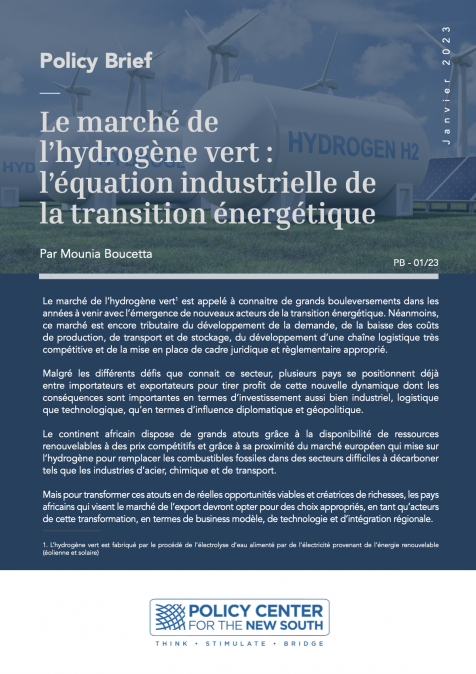Publications /
Policy Brief
The future of our environment, ecology and biodiversity raises a number of questions. Vigilance is critical to preseving both Morocco and the planet for future generations. This Paper highlights the importance of ongoing government, private sector and civil society initiatives to ensure adaptation to, and mitigation of, climate change. Morocco is at the forefront of this momentum, as illustrated by the organization of the COP22 in Marrakech in 2016, the implementation of a National Strategy for Sustainable Development, and its commitment to achieving UN Sustainable Development Goals for 2030. The review of Morocco's ecological footprint and its environmental degradation costs, stress the urgency of transitioning to a sustainable development model and implementing a new economic, social and environmental pact that engages all citizens, particularly youth and women.












